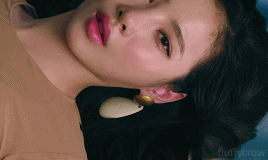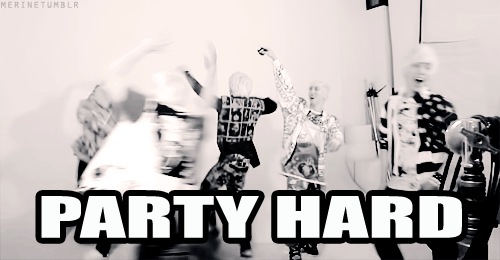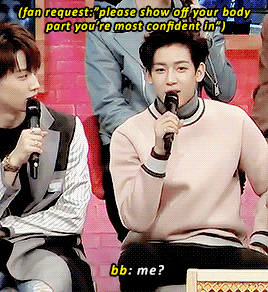#learn korean with kpop
안녕하세요 여러분! Hey everyone! I got another request for a K-pop breakdown, so here it is! This one was pretty tricky for me to break down, but I hope it all makes sense anyways! If you have a song you’d like to see me break down, let me know and I’ll try to fulfill it!
You can listen to this song here! I used lyricstranslate.com’s really good translations and Naver Dictionary to help me out. As usual, I linked my full-length lessons about the grammar structures mentioned if you want to learn more about them! Let’s start!

휘하고 멋지게 솟구치는 눈은 / 이별에 손짓인 듯 부서지는 / 밤으로 가득한 고요를 본다
The snow that soars up majestically with a whoosh / Sees the silence full of night / That is shattered by our goodbye as if it were a gesture
- 휘하다 -> I can’t find a related translation for this word on Naver Dictionary, but just going off the translations from lyricstranslate, it means “with a whoosh.”
- 멋지다 can mean anything from “nice” to “awesome” to “charming.”
- [adjective stem] + 게 turns that adjective into an adverb.
- -고is attached to stems to mean “and.” So 휘하고 멋지게 means “with a whoosh and majestically.”
- 솟구치다 = soar; gush; surge
- 눈 = snow
- [verb] + 는 + [noun] = [noun] that [verbs] -> This is how you describe nouns with verbs in the present tense.
- -은 is a topic particle that shows that 눈 is the topic of the sentence. More about particles here!
- 이별 = farewell; goodbye
- 에 = is a location particle meaning “to” or “in.” In this context, however, it means “by,” as in “shattered by.”
- 손짓 = hand gesture
- [noun] + 인듯 = as if it is [noun]
- 부서지다 = break; be broken; be shattered
- 밤 = night
- 가득하다 = full [of smth]
- -(으)로 in this context means “with” or “of,” as in “filled with night” or “full of night.”
- 고요 = silence
- 보다 = to see
- [verb stem] + ㄴ/는다 or [adjective stem] + 다 is known as the plain style or narrative form. This type of speech doesn’t really have a formality level. You see it a lot in books and newspapers where there’s not really a specific formality level you’re using. It can also be used with those who you would speak informally to.
돌아보는 여운이 안타깝다 / 숨을 쉰다 눈이 온다 / 인사한다 잠이 든다
The afterglow is full of regret / Breathing, snowing / Greeting, falling asleep
- 돌아보다 = to look back
- 여운 = resonance; lingering feeling; echo
- I think 돌아보는 여운 literally means “the resonance I looked back on” or something like that.
- 안타깝다 = regrettable; sad
- 숨을 쉬다 = to breathe
- 눈이 오다 = to snow (literally “snow comes”)
- 인사하다 = to greet
- 잠이 들다 = to fall asleep
- When conjugated into the plain style, the ㄹ gets dropped and replaced with -ㄴ다 because it’s irregular.
떠나간다 / 떠나간다 / 남은 것은 이제 없다
Leaving / Leaving / Now there’s nothing left
- 떠나가다 = to leave
- 남다 = to remain; to be left
- 남은 것 = what’s left; the things that remain
- 이제 = now
- 없다 = to not be there; to not exist; to not have
그대가 웃는 걸 보면서 나도 웃는다 / 발자국에 아쉬움 꾹 묻어둔 채로
As I look at you smile, I smile too / Burying my regret in my footprints
- 그대 = You -> this is a more romantic way of saying “you” that you would say to your partner.
- 웃다 = to smile; to laugh
- 웃는 걸 refers to the fact that you’re smiling. The action of you smiling is turned into a noun, and that is what the speaker is looking at.
- [verb stem] + (으)면서 means “as one [does verb]” and is used for when two actions are done simultaneously.
- 나 = I (informal)
- -도 = too
- 발자국 = footprints
- 아쉽다 = be a shame; be a pity
- 아쉬움 is the noun form of 아쉽다 courtesy of -ㅁ nominalization.
- 꾹 = firmly; completely
- 묻어두다 = hide; bury; conceal
- -ㄴ 채로 describes the state that something is in as an action is being done. In this case, the speaker is smiling with her heart buried – her heart is in the state of being buried as she is smiling.
That’s all for this breakdown – I hope it was helpful! See you in the next lesson! 다음에 또 봐요!
- My masterlist
- Joinmy Discord chat here to practice Korean with others!
- Follow me onInstagram herefor more Korean content!
- GetDrops Premium usingmy affiliate linkto expand your Korean vocab!
- Check out myKo-Fi to support this blog and my studies! Thank you for your generosity!
Boy With Luv - BTS (feat. Halsey)
모든 - Everything, All
궁금하다 - To be curious
행복하다 - To be happy
가르치다 - To teach
하늘 - Sky
날개 - Wing(s)
이제- Now
너무 - Too
눈 - Eye(s)
전부- All
함께하다 - To be together
조금 - A little bit, Some
알다 - To know
온통 - Altogether, All
너 - You
별- Star(s)
특별 - Special
관심사- Interest
걷다 - To walk
말투 - The way someone speaks
작다- To be small
습관 - Habit
영웅 - Hero
운명 - Fate, Destiny
세계 평화 - World peace
도망 - Run away, Escape
기도 - Prayer
상처 - Wound
깨닫다 - To realize
이카루스 - Icarus
태양 - Sun
Butterfly - LOONA
속삭이다 - To whisper
신기루 - Mirage
느낌- Feeling
채우다 - To fill up
꿈- Dream
이- This
순간 - Moment
멀리 - Far away
바람 - Wind
소리 - Sound
어지러운 - Dizzy
접히다 - To be folded
종이 - Paper
달 - Moon
시작 - Start
이제 - Now
세계 - World, The world
구름 - Cloud
숨- Breath
(으)ㄹ 때
(으)ㄹ 때: is added to a verb/noun/adjective to explain when something is happening, it’s basically like saying “when A happens then B will happen”
There are 2 ways to use this
- If it ends with a vowel or ㄹ use ㄹ 때 (by adding the ㄹ to the end of the last syllable)
- If it ends with a consonant other than ㄹ use 을 때
(*note there is always a space between 을 때, if not it can mean something else)
나는 풍부한 있을 때 한국에 가서Got7 콘서트를 볼거예요 -when I’m rich I’ll go to Korea and see a Got7 concert

Got7 멤버는 영어로 말할 때, 나는 행복하게 느껴요-when the members speak English, it makes me happy

잭슨의 미소를 볼 때 나는 기절해요 - when I see Jackson’s smile I faint! (I’m Jackson Biased)

이/가 되다
이/가 되다 : added to a noun, to make the subject of the sentence become that noun. Yeah I know its kinda confusing read the example sentences hopefully it makes sense if not message me and I’ll try and explain it better
-Example: “Jimin worked hard to become the main dancer of BTS”. “Dancer” is a noun and “Jimin” is the subject so by adding 되다 you are saying he has become that noun i.e he has become a dancer, idk if that makes sense, it makes sense to me, if you don’t understand it message me your questions.
Example sentences:
A.R.M.Y가 더 큰 팬클럽이 되었어요 - ARMY’s have become a bigger fanbase

방탄소년단 은 세상에 인기가 되는 곳이에요 - Bts have Become popular all around the world

지민은 매일 더 귀여워 되는 곳이에요 - jimin is becoming cuter everyday

Finally working on some new posts for you guys. i kept saying i’d make more since its summer, but to tell you the truth i haven’t even been practicing korean this whole time idk why, just haven’t had the motivation. But i should have a post ready by tomorrow so look forward to it!
Also i’m thinking of doing the 100 day Language challenge, does anyone want to do the challenge with me? if enough people join i’ll post / reblog your 100 day language challenge post each day along with posting my own too, let me know if you wanna do it, just message me
고 있다 is added to a verb to indicate that the action is still going on, kinda like adding “ing” to a verb . just remove the 다 from the end of the basic form of the verb and add 고 있다 For Example :
가다 = 가고 있어요
공부하다 = 공부하고 있어요
Example sentences
방용국이 웃고 있어요= Yongguk is smiling

문종업이 춤을 추고 있어요 = Jongup is dancing

정대현이 노래하고 있어요 Daehyun is singing

You can also use it in Past tense form too : ~고 있었어요 its like saying “I was doing____ in the past”
For example: = 나는 내 사업에 신경을 쓰고 있었어요. 그럼 내가 k-pop 을 찾았 어.
(I was minding my own business and then I found k-pop)

건강하다 -> 건강해요
잭슨은건강해요 (Jackson is healthy)

Extra Vocabulary
Athletic = 경기의
Active = 유효한
Strong = 강한
Fat = 뚱뚱하다,
잘 생기다 -> 잘 생겼어요
모든 샤이니가 잘 생겼어요 (all of shinee are really good looking)

Extra Vocabulary
Elegant = 우아한
Stylish = 세련된
Ugly = 추한
창피하다 -> 창피해요
윤도운이창피해요 (Yoon Dowoon is embarrassed)

Extra Vocabulary
Ashamed/Shy = 부끄러워
Flustered = 어리둥절한
Blushing = 붉히다
Outgoing = 나가는
귀엽다 -> 귀여워요
김원필이 너무 귀여워요 (Kim Wonpil is very cute)

Extra Vocabulary
Pretty예쁜
Charming매력적인
Kitten 고양이 새끼
Puppy 강아지 새끼
크다 -> 커요
뱀뱀이커요 (bam bam is big lol)

Extra Vocabulary
To be tall = 키가 크다
Huge = 거대한
Small = 작다
짜증나다 -> 짜증나요
잭슨은 영재에게 짜증나요 (Jackson is annoyed with youngjae)

Extra Vocabulary
Upset = 당황
Impatient = 참을성없다
Bother = 괴롭히다
